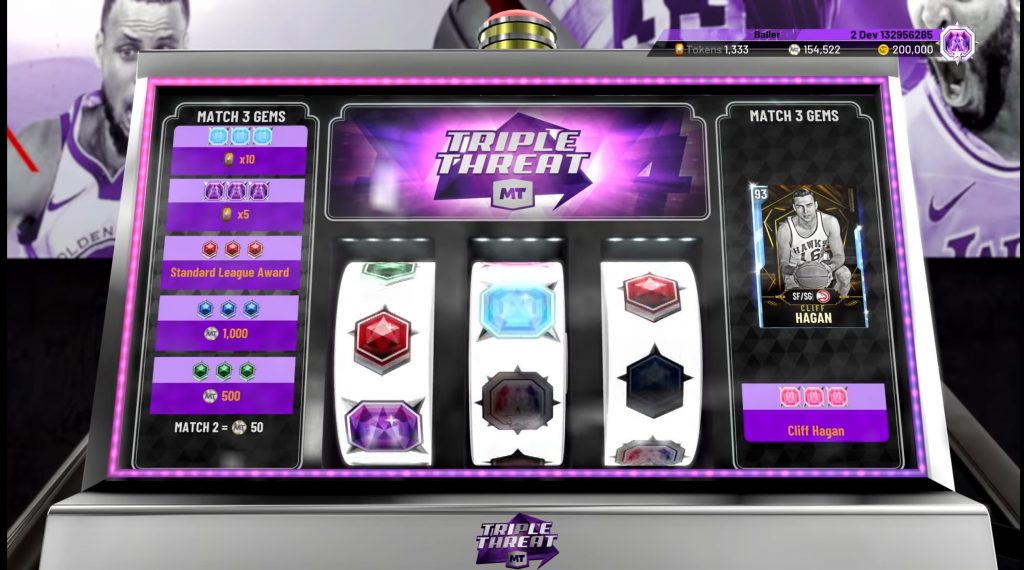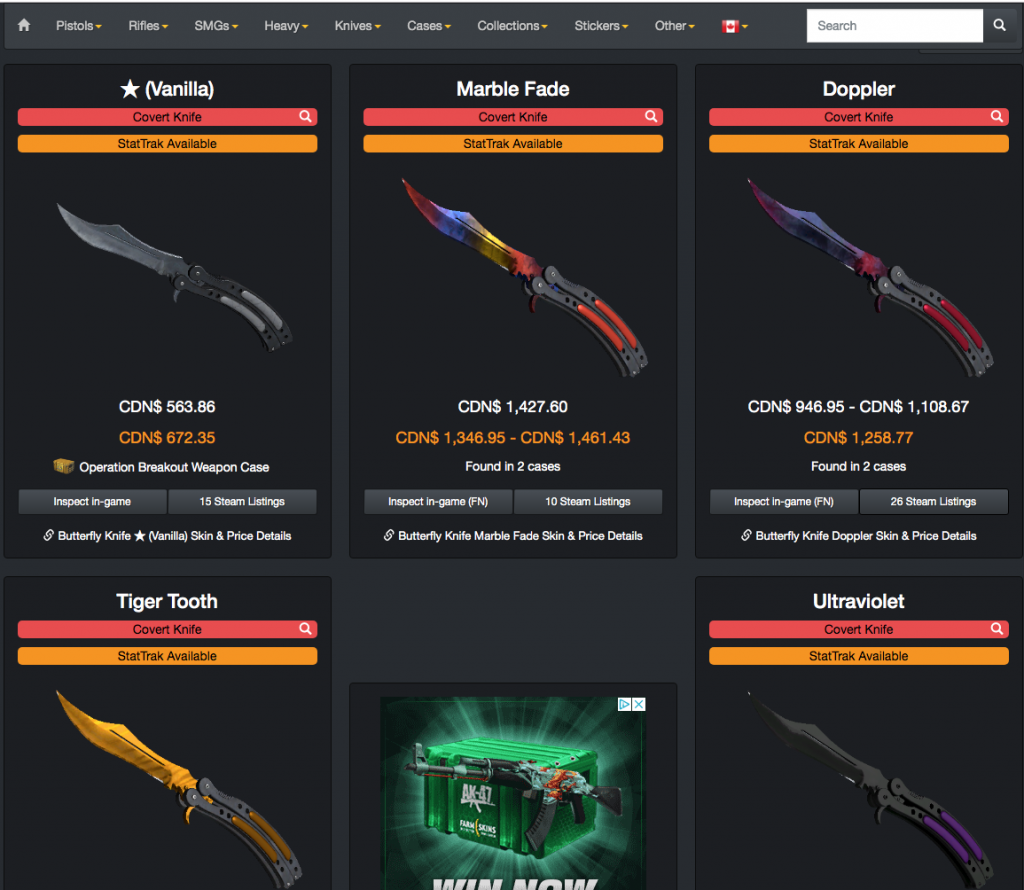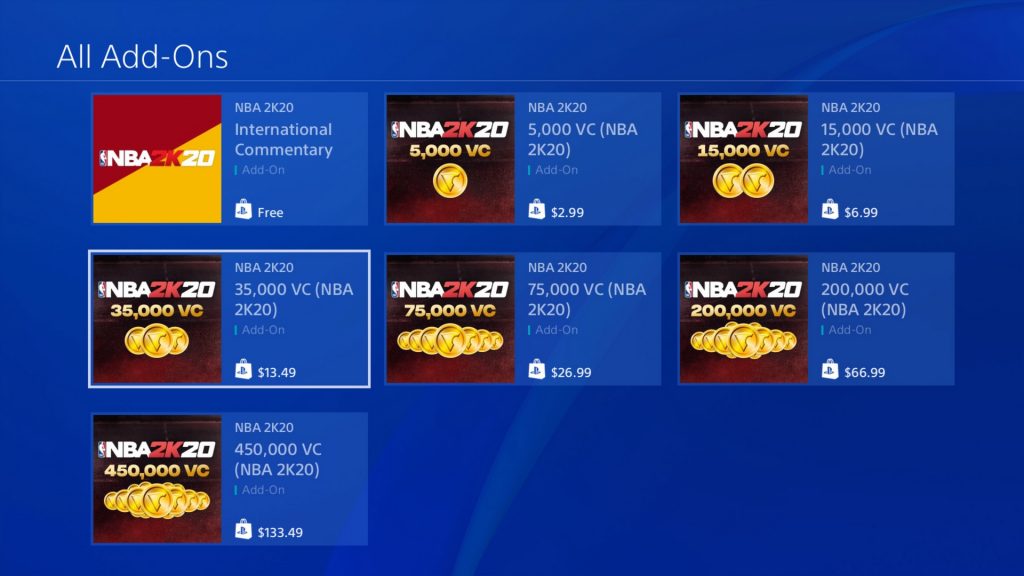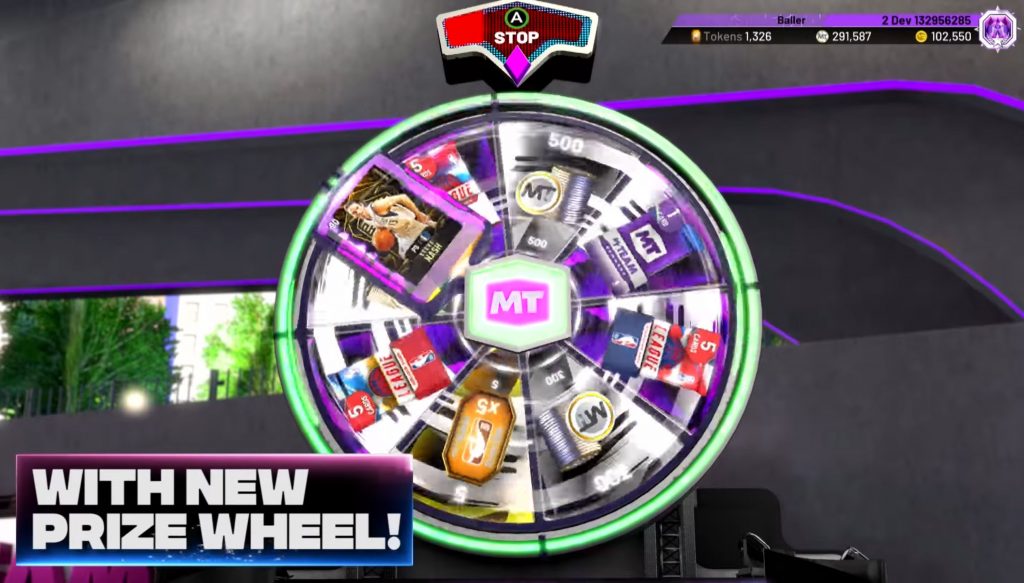
The latest version of the NBA 2K game includes a slot machine. Some people worry that this is a bad influence on young players. Photo from NBA 2K [1]
By Kyle Ellington [2]
BELLEVILLE – Video games and controversy are two things that seem to go hand in hand lately.
The newest controversy is over whether some video games might lead young people into gambling by encouraging them to spend money to get a head start toward winning the game.
It’s all about what are known as microtransactions, which allow gamers to buy virtual items or virtual currency with real-world money. In most games, gamers buy either packs (a collection of game tools) or loot boxes (containing in-game items and rewards), through these microtransactions. But in some games, such as Counter-Strike: Global Offensive [3], you can sell an item acquired through the loot boxes for real-world money. Other games tempt players to spend money with the hope of getting something really good in return – such as a top-ranked player in a sports game.

In the game Counter-Strike: Global Offensive [3], knives are rare items and cost the most to buy. Photo by Kyle Ellington QNet News

Prices for a microtransaction in NBA 2K20 Photo by Kyle Ellington, QNet News
Heavy use of microtransactions by gamers has resulted in some big money losses, which is why critics compare it to gambling.
Alec Szarek, a first-year customs and border services student at Loyalist College and an avid gamer, says he first started buying loot boxes through microtransactions when he was 15 years old.
“I’ve spent nearly $6,000 (US, which is about $8,000 Cdn) on Counter-Strike Global Offensive, but I have spent a lot of money on Overwatch loot boxes in the past, FIFA pack openings (and) League of Legends loot boxes as well,” he told QNet News.
Szarek said to gamble in Counter-Strike all you have to do is click a button saying you’re over 18 years old. No official identification is required.
He spent thousands of dollars buying items to play Counter-Strike, he said
Other games, such as NBA 2K [4], have recently added gambling elements like slots and wheel spins. Players do not pay to play, but they give the games a gambling appearance that some critics – including Szarek – say is a bad influence on young players. NBA 2K has a rating of E, which means it’s for all ages.

A prize wheel for game rewards in NBA 2K. Photo from NBA 2K
“If you have slots and pin-drop [5] machines that encourage gambling – and slots is one of the biggest things inside of casinos – kids are going to like the slot machines. They’re going to like the feeling of triple 7s … Eventually that mentality is going to reach into a serious mental state when they’re older,” Szarek said.
He’s also critical of young players being allowed to spend money – their own or their parents’ – as a faster way to get loot boxes in games.
“It should be banned everywhere. It might not be seen as gambling, but it is … It should be banned, or there should be a stricter restriction.”
While Szarek is still a gamer, he no longer spends money when he plays games: “I’m finally at the age where I understand that it’s completely useless.”
He realized he was getting addicted after he maxed out his debit card by spending $1,500 in a single day and got a call from his bank, he said.

Loyalist student Andrew Mcgrath says he’s spent too much money on game tools. Photo by Kyle Ellington, QNet News
Andrew Mcgrath, a first-year recreation and leisure student at Loyalist and a member of the student gaming club, says he’s spent too much money on the Madden Mobile game app.
“Of my own money, I’ve spent $100, but from receiving gift cards, probably $150 or $200,” Mcgrath said.
Players “start to get excited when they spend money and get rewarded with better cards,” he said. But the risk is that they’ll keep spending more and more, “and when they get to legal age they’ll start to spend some, if not all, of their time at casinos, just to keep the addiction alive.”